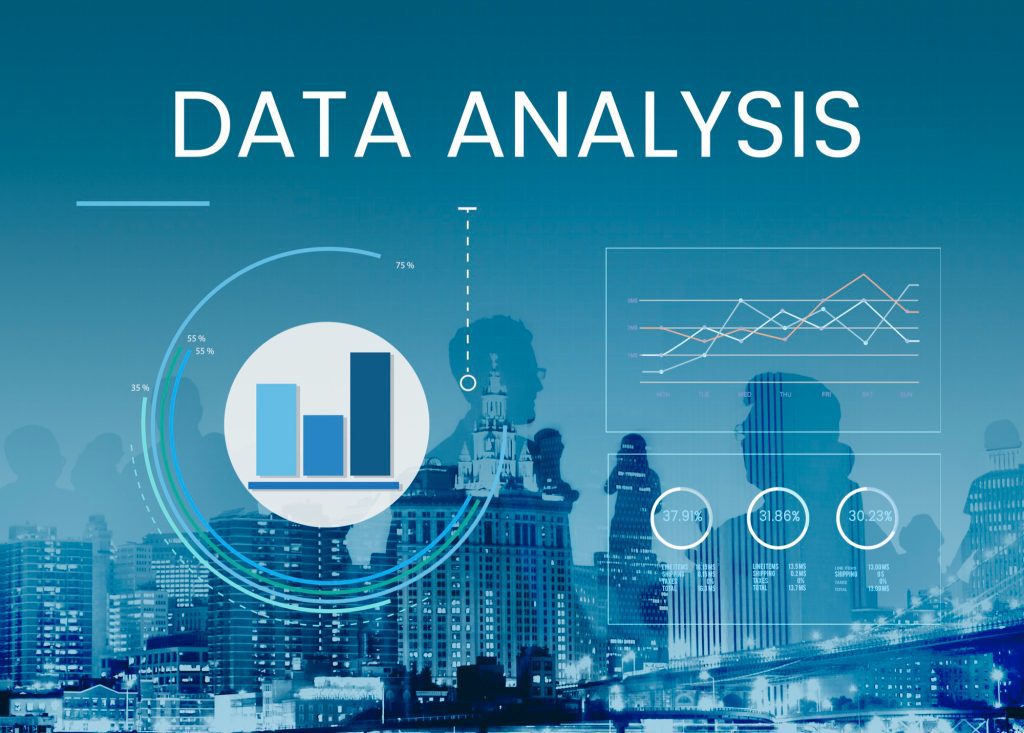In today’s digital landscape, where businesses strive to stay ahead of the competition, harnessing the potential of artificial intelligence (AI) has become increasingly vital for successful digital marketing strategies. AI is revolutionizing various industries, and digital marketing is no exception. It offers powerful tools and technologies that enable businesses to analyze vast amounts of data, automate processes, personalize customer experiences, and make data-driven decisions.
This article explores the role of Artificial intelligence in digital marketing and how businesses can leverage its potential to achieve their marketing goals. We will delve into the various applications of AI in digital marketing, ranging from personalization and targeting to enhancing customer experiences. Furthermore, we will discuss how artificial intelligence enables marketers to analyze data effectively, automate marketing processes, and make informed decisions for campaign optimization.
As AI continues to evolve, marketers need to understand its capabilities and how it can be effectively integrated into their digital marketing strategies. By embracing artificial intelligence, businesses can unlock new opportunities, improve efficiency, and drive better results in their marketing efforts. So let’s dive into the world of AI and explore how it can revolutionize digital marketing for businesses of all sizes.
AI-Powered Technologies Transforming Digital Marketing
AI-powered technologies are revolutionizing the digital marketing landscape, offering innovative solutions to enhance customer experiences, optimize marketing strategies, and drive business growth.
Natural Language Processing (NLP)
NLP enables computers to understand and process human language, allowing marketers to analyze customer feedback, sentiment, and intent. NLP-based chatbots and virtual assistants can interact with customers, provide personalized recommendations, and resolve queries, enhancing customer engagement and satisfaction. Moreover, NLP algorithms can extract valuable insights from social media comments, customer reviews, and online conversations, enabling marketers to monitor brand perception and tailor marketing campaigns accordingly.
Computer Vision
Computer vision technology utilizes Artificial Intelligence to interpret and understand visual data, such as images and videos. In digital marketing, computer vision plays a vital role in areas like graphic search, product recognition, and content analysis. For instance, image recognition algorithms can analyze user-generated content and identify brand logos or products, allowing marketers to track brand mentions and user-generated content that can be leveraged for social proof and influencer marketing.
Predictive Analytics
Predictive analytics utilizes artificial intelligence and statistical models to forecast future outcomes based on historical data. In digital marketing, predictive analytics can help marketers predict customer behaviour, anticipate market trends, and optimize marketing campaigns for better ROI. By analyzing customer data, such as past purchases, browsing patterns, and demographic information, predictive analytics can identify potential high-value customers, personalize offers, and improve customer retention strategies.
Recommendation Systems
Recommendation systems leverage AI algorithms to provide personalized product or content recommendations to users. By analyzing user preferences, browsing history, and purchase behaviour, recommendation systems can deliver targeted suggestions, cross-sell or upsell relevant products, and enhance the overall customer experience. This technology is widely used in e-commerce platforms, streaming services, and content marketing to drive customer engagement and increase conversions.
How Can Artificial Intelligence Help in Digital Marketing?
Personalization and Targeting with Artificial Intelligence

One of the significant advantages of Artificial Intelligence in digital marketing is its ability to deliver personalized experiences and targeted messaging to customers. Personalization has become a critical aspect of effective marketing strategies, and artificial intelligence plays a crucial role in achieving this level of customization.
- Data Analysis and Customer Insights: AI algorithms can analyze vast amounts of customer data, including demographic information, browsing behaviour, purchase history, and social media interactions. By leveraging machine learning techniques, Artificial Intelligence systems can identify patterns, preferences, and trends, enabling marketers to gain deep customer insights. This data-driven approach helps marketers understand their audience better, segment customers into distinct groups, and create tailored marketing campaigns.
- Dynamic Content Creation: AI-powered content generation tools allow marketers to create dynamic and personalized content at scale. Through natural language generation (NLG) algorithms, AI systems can automatically generate personalized email campaigns, website content, product descriptions, and even social media posts. This level of customization ensures that the right message is delivered to the right audience at the right time, enhancing engagement and driving conversions.
- Behavioural Targeting: AI algorithms analyze customer behaviour and interactions to create highly targeted marketing campaigns. By tracking user actions, such as clicks, purchases, and page views, AI systems can predict customer preferences and deliver personalized recommendations. This approach enables marketers to present relevant offers and promotions to individual customers, increasing the likelihood of conversion and fostering brand loyalty.
- Real-time Decision Making: AI technology enables marketers to make real-time decisions based on customer data and behaviour. By continuously monitoring and analyzing data, AI systems can dynamically adjust marketing strategies and campaigns to optimize performance. For example, AI-powered advertising platforms can automatically optimize ad placements, bidding strategies, and audience targeting to maximize ROI and ensure that the right ads are shown to the right people.
- Customer Journey Optimization: Artificial intelligence can assist in mapping and optimizing the customer journey by analyzing customer touchpoints and identifying opportunities for personalization. AI-powered recommendation engines can suggest relevant products or content to customers at various stages of their journey, increasing engagement and guiding them towards conversion. By understanding individual customer preferences, AI systems can tailor the customer experience and provide seamless interactions across multiple channels.
Enhancing Customer Experience Through Artificial Intelligence

Providing exceptional customer experiences is crucial for businesses to stand out from the competition. AI technologies offer powerful tools and capabilities that can significantly enhance the customer experience.
- Chatbots and Virtual Assistants: AI-powered chatbots and virtual assistants have revolutionized customer service by providing instant and personalized support. These intelligent systems can handle customer inquiries, provide product recommendations, and offer assistance 24/7. By leveraging natural language processing (NLP) algorithms, chatbots can understand and respond to customer queries, providing timely and accurate information. This enables businesses to offer round-the-clock support, improve response times, and enhance overall customer satisfaction.
- Voice Assistants and Voice Search Optimization: With the rise of voice-enabled devices and voice search, AI-based voice assistants like Siri, Alexa, and Google Assistant have become integral parts of the customer experience. Optimizing content for voice search and developing voice-enabled applications allow businesses to connect with customers through voice commands and interactions. AI algorithms can understand spoken language, interpret user intent, and provide relevant information or perform tasks. By embracing voice technology, businesses can offer a more intuitive and seamless customer experience.
- Predictive Analytics and Personalized Recommendations: AI-powered predictive analytics enables businesses to anticipate customer needs and deliver personalized recommendations. By analyzing historical customer data, AI algorithms can identify patterns and trends, predicting customer preferences and behaviour. This enables businesses to offer tailored product recommendations, personalized offers, and targeted marketing campaigns. By leveraging predictive analytics, businesses can create highly relevant and personalized experiences, increasing customer satisfaction and driving repeat business.
- Sentiment Analysis and Social Listening: AI technologies can analyze customer sentiment and social media conversations to gain insights into customer opinions, preferences, and brand sentiment. By employing natural language processing and sentiment analysis algorithms, businesses can monitor online conversations, identify customer feedback, and address issues in real-time. This proactive approach helps businesses understand customer sentiment, adapt their strategies, and deliver a more customer-centric experience.
- Virtual Reality (VR) and Augmented Reality (AR): AI-powered VR and AR technologies enable businesses to offer immersive and interactive experiences to their customers. Virtual reality can transport customers to virtual environments, allowing them to explore products or services in a simulated setting. Augmented reality overlays digital elements in the real world, allowing customers to visualize products or try them out virtually. By incorporating VR and AR experiences, businesses can engage customers on a deeper level, provide interactive product demonstrations, and facilitate informed purchasing decisions.
AI-Driven Data Analysis and Insights

Data plays a pivotal role in digital marketing, providing valuable insights into customer behaviour, market trends, and campaign performance. However, the sheer volume and complexity of data can be overwhelming to analyze and derive meaningful insights from. This is where AI-driven data analysis comes into play, revolutionizing the way businesses leverage data for decision-making.
- Advanced Data Processing: AI algorithms have the capability to process and analyze vast amounts of data at a speed and scale that would be impossible for humans. With artificial intelligence, businesses can efficiently handle and analyze diverse data sets, including customer demographics, online interactions, purchase history, and social media data. This enables enterprises to uncover patterns, correlations, and trends that can inform marketing strategies and campaign optimization.
- Real-Time Analytics: AI-driven data analysis allows businesses to gain real-time insights, enabling agile decision-making and responsiveness. By leveraging AI algorithms, businesses can monitor data streams in real-time, identifying emerging trends, consumer sentiments, or market shifts. Real-time analytics enables businesses to make data-driven decisions on the fly, adjust marketing campaigns in real-time, and seize opportunities as they arise.
- Predictive Analytics and Forecasting: AI technologies excel in predictive analytics, utilizing machine learning algorithms to forecast future outcomes based on historical data patterns. By analyzing historical data, AI algorithms can identify trends, predict customer behaviour, and forecast market demand. This empowers businesses to make proactive decisions, optimize marketing strategies, and allocate resources effectively. Predictive analytics helps companies to anticipate customer needs, identify potential bottlenecks, and optimize marketing initiatives for maximum impact.
- Audience Segmentation and Targeting: AI-driven data analysis enables businesses to segment their audience with precision and target specific customer groups. By analyzing customer data, AI algorithms can identify common characteristics, interests, and behaviours, allowing businesses to create highly targeted marketing campaigns. This personalized approach helps businesses deliver relevant messages to the right audience, increasing engagement and conversion rates. AI-driven audience segmentation allows businesses to tailor their marketing efforts to different customer segments, optimizing their messaging and maximizing their ROI.
- Data Visualization and Reporting: AI technologies facilitate data visualization, transforming complex data sets into visually appealing and easy-to-understand formats. With AI-powered data visualization tools, businesses can create interactive dashboards, charts, and graphs that present key insights in a visually compelling manner. This enables stakeholders to quickly grasp important trends and patterns, facilitating data-driven decision-making. AI-driven reporting also automates the process of generating reports, saving time and effort while ensuring accurate and consistent reporting across campaigns and channels.
Automating Marketing Processes with Artificial intelligence

Automation has become an integral part of digital marketing, streamlining processes and increasing efficiency. With the advent of artificial intelligence, businesses can now take automation to a whole new level by leveraging intelligent algorithms that can perform complex tasks with minimal human intervention. Here are some key aspects to consider when it comes to automating marketing processes with artificial intelligence.
- Email Marketing Automation: AI-powered tools can automate various aspects of email marketing, such as personalized email campaigns, automated follow-ups, and dynamic content insertion. AI algorithms can analyze customer behaviour, preferences, and engagement patterns to deliver highly targeted and relevant email communications. This not only saves time but also enhances the effectiveness of email marketing efforts by delivering the right message to the right audience at the right time.
- Chatbots and Conversational bots: Chatbots powered by artificial intelligence can provide instant and personalized customer support, engaging with website visitors or social media users in real time. These intelligent bots can understand natural language, answer frequently asked questions, provide product recommendations, and even process transactions. By automating customer interactions, businesses can enhance customer satisfaction, improve response times, and handle a large volume of inquiries simultaneously.
- Social Media Management: AI-powered tools can assist in social media management by automating tasks such as content scheduling, social listening, sentiment analysis, and even content generation. These tools use machine learning algorithms to analyze social media data, identify relevant trends and conversations, and schedule posts for optimal engagement. Automated social media management helps businesses maintain a consistent online presence, monitor brand reputation, and effectively engage with their audience across various platforms.
- Ad Campaign Optimization: AI algorithms can optimize digital advertising campaigns by continuously analyzing data and making real-time adjustments to targeting, bidding, and ad placements. These algorithms can identify patterns in customer behaviour, determine the optimal audience segments to target, and allocate ad spend to maximize return on investment. By automating the optimization process, businesses can enhance campaign performance, increase click-through rates, and improve overall ad efficiency.
- Content Generation: AI-powered content generation tools can assist in creating engaging and relevant content at scale. These tools leverage natural language processing and machine learning to analyze existing content, identify key themes, and generate new content pieces, such as blog posts, product descriptions, and social media captions. Automated content generation streamlines the content creation process, reduces manual effort, and enables businesses to produce a consistent flow of high-quality content.
The potential of artificial intelligence in digital marketing is vast and transformative. AI-powered technologies are revolutionizing the way marketers understand and engage with their target audiences. From machine learning algorithms to personalized customer experiences, artificial intelligence is reshaping the digital marketing landscape.
As we look to the future, AI will continue to shape digital marketing practices. Advanced personalization, voice search optimization, and augmented reality experiences are just a few examples of the emerging trends that artificial intelligence will drive. However, it is important to consider ethical implications and ensure responsible artificial intelligence practices to maintain customer trust and data privacy.
Embracing artificial intelligence in digital marketing is essential for businesses to stay competitive in today’s rapidly evolving landscape. By adopting AI-powered technologies, marketers can unlock new opportunities, drive engagement, and achieve better ROI. The potential of AI in digital marketing is limitless, and businesses that embrace it will be well-positioned for success in the digital age.




